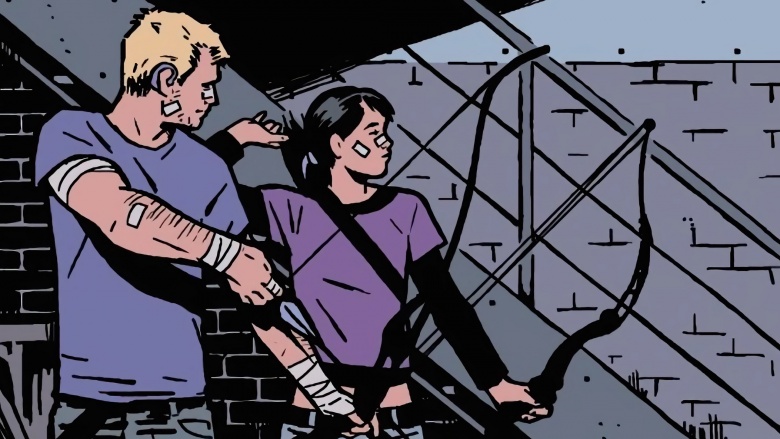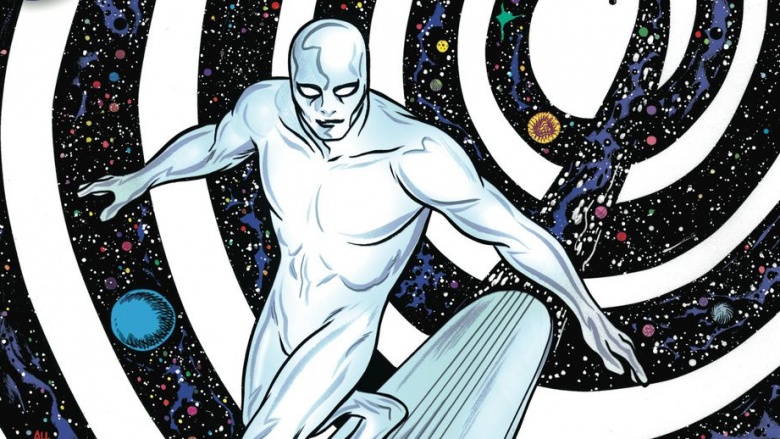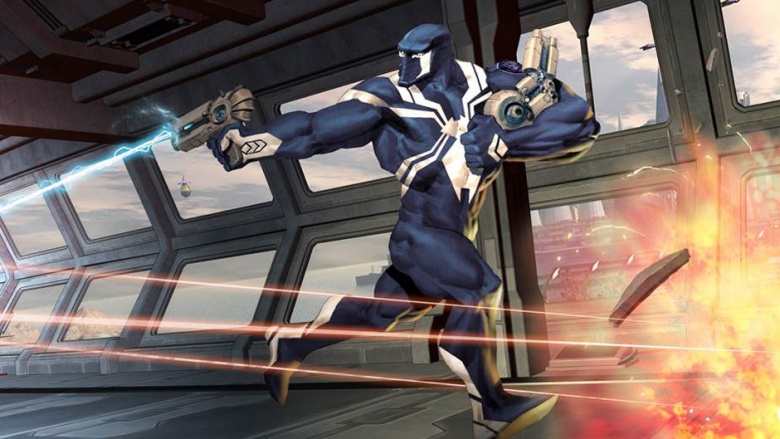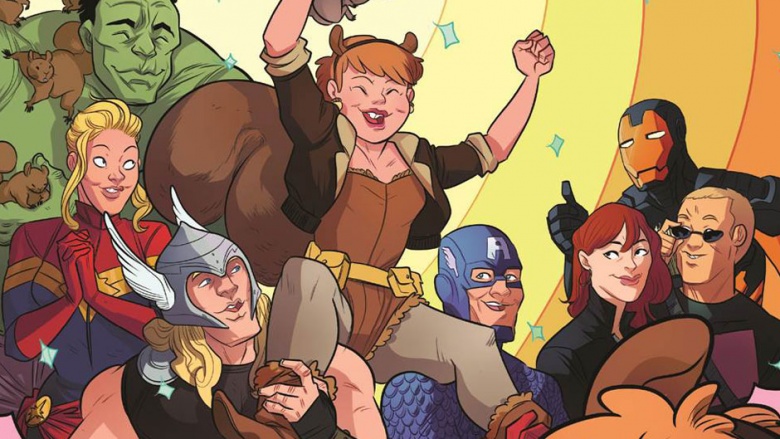No-Name Marvel Superhero Comics Better Than The Big Guys
Spider-Man, the X-Men, Iron Man—they're all fine and fun reads, but dig a little deeper into Marvel's current roster of releases and you'll find gold. The Marvel superheroes in these books may not be headline-grabbing megastars, but the stories they're telling are simply better than anything else in Marvel's current repertoire.
Hawkeye
Writer Matt Fraction and artist David Aja's run on Hawkeye made the laughingstock of the Avengers the coolest, most relatable person in the Marvel universe (imagine the Dude as a Marvel superhero and you're on the right track). It set a new standard for Marvel—in fact, its influence can be felt in every title on this list—while proving superhero stories don't have to follow cookie-cutter formula.
When he's not off saving the world as an Avenger, Clint Barton, a.k.a. Hawkeye, lives in his run-down New York apartment with his dog, and that's where much of Fraction and Aja's Hawkeye takes place. No jaunts into space, or battles where the fate of the world—nay, the galaxy!—is at stake. It's all about Hawkeye defending his fellow tenants from a tracksuit-wearing Russian gang, each member of which habitually abuses the word "bro." The comic's real fun is in Clint's interaction with Kate Bishop, the young archer who also uses the Hawkeye name (it's complicated). Their repartee is concise and snappy, often evoking classic film comedies like Philadelphia Story, as Kate battles through her mentor's psychological baggage and self-loathing to get him motivated to do his job.
A quick read at only 22 issues, the Fraction/Aja Hawkeye is essential for comics fans. It takes its chances on a smaller, more personal story, and succeeds on every level.
Vision
You know that socially awkward android played by Paul Bettany in the Marvel movies? His name is Vision, and he's been around for years, but he's hardly ever been a lead character. Sure, writers have tried to make him a leading man—or, uh, sentient machine—but none of his standalone series have managed to strike much of a chord with readers.
Until recently, when writer Tom King took the reins for a new Vision title. It might not have been inspired by anything more than Marvel's desire to take advantage of the character's onscreen arrival in Avengers: Age of Ultron, but the result is nothing short of masterful, a superhero story unlike anything else on the market today. Perhaps ever.
In King's ongoing series, Vision has taken a wife—or more to the point, created one. Years ago, Scarlet Witch (with whom Vision has had a long-running, on-again/off-again relationship) gave Vision a sample of her her brainwaves, essentially telling him to make a version of her that's better for him. Following her wishes, he created his new android spouse, Virginia. Once united, the pair combined their brainwaves and created their children, Vin and Viv. Desperate for some semblance of human normalcy, Vision bought his family a house in suburbs and started commuting to his Avengers job, building a new life for himself as well as the core of King's story: it's about what happens when god-like beings aspire to be something much less than they are.
Vision juggles a lot of ideas: the bland complexity of suburban life, crumbling marriages, the nature of love and the definition of humanity, and the horrific lengths people will go to in order to protect their own. This isn't a comic book, it's a stunning HBO hourlong drama in comic book form that happens to star an Avenger. This is American Beauty with Kevin Spacey's family replaced by robots, and an unsettling domestic horror story that demands to be read.
Silver Surfer
Silver Surfer has always been one of Marvel's more "out there" titles. The character is a cosmic traveler and the guilt-ridden former herald of Galactus, a giant space creature who derives sustenance by devouring planets. Created in the mid-1960s, Silver Surfer was just the kind of character the era's drug-taking, mind-expanding comics readers were looking for. He and his surfboard tore through space, time, and reality itself, questioning the nature of existence along the way. Heavy stuff indeed.
More recently, writer Dan Slott got ahold of the Surfer, using the character as the centerpiece of a delightful, cheery, funny, rip-roaring romp through space and time that explodes with color and personality. It's basically Doctor Who starring a Marvel superhero.
In classic Doctor Who fashion, Slott's series sees Silver Surfer taking on a companion. Her name is Dawn, and her presence adds a healthy dose of heart and humanity that pairs remarkably well with the Surfer's stoic nobility. And the art provided by Michael and Laura Allred is a colorful burst of joy, with every panel inviting you to tag along for the wild cosmic ride. If you're looking for a purely fun comic that frequently manages to be thought-provoking in the bargain, Dan Slott's Silver Surfer should be your first stop.
Venom: Space Knight
It's difficult to explain, so just accept that Flash Thompson, the guy who used to bully Peter Parker in high school, has been through a lot over the years. After losing his legs in war, Thompson became the new Venom, started fighting for the good guys, joined the Guardians of the Galaxy for a bit, and is now a charming space rogue who captains his own ship alongside a suicidal robot, a large pink warrior woman, and an enormous panda who's also an assassin with a child. All, of course, while wearing his menacing black Venom symbiote suit.
It's a crazy premise, but it works and it's a blast. Flash was never the brightest guy; he's always been an impulsive jock with a temper, which makes him perfect for Marvel's version of the Han Solo or Captain Mal Reynolds type, leading an odd assortment of stragglers on adventures across the stars. The central conflict surrounds Flash's relationship with his symbiote Venom suit, which has a mind and motivation of its own. It's a living creature that would rather use Flash for its own malevolent purposes than work together to right the universe's wrongs. In all, Space Knight amounts to a grand swashbuckling adventure on the high seas of space.
The Unbeatable Squirrel Girl
For a long time, Squirrel Girl was kind of a joke—a failed concept for a Marvel superhero writers occasionally referenced to poke fun at the idea of dumb comics gimmicks. Her real name is Doreen Green, and she's a mutant born with the prehensile tail of a squirrel, and with some squirrel powers to boot. She can talk to squirrels. She's as agile as a squirrel. She...really likes nuts? See? Not much to her. In spite of the character's shortcomings, over the years she gained the title of "unbeatable" after defeating the likes of Wolverine, Thanos, and Deadpool.
Embracing the gimmicks and the title, writer Ryan North took the reins for Doreen's first solo series, The Unbeatable Squirrel Girl—and the results are equal parts charming and funny, and quirky without forced affectations. Her adventures are frequently hysterical, and often double as spot-on parodies of comic book tropes that are, themselves, fully functioning comic book stories. Take, for instance, her confrontation with the planet-eater Galactus. She whoops him by tricking him into switching to a nut diet (they're high in energy!), but only after a side-splitting, thought-provoking argument over gender-specific pronouns. Or when she gets the X-Men's Jubilee to confess that Wolverine's claws don't actually make the iconic "snikt!" sound (turns out he makes that sound with his mouth). The Unbeatable Squirrel Girl may be a silly idea, but it makes for a thoroughly charming read.





